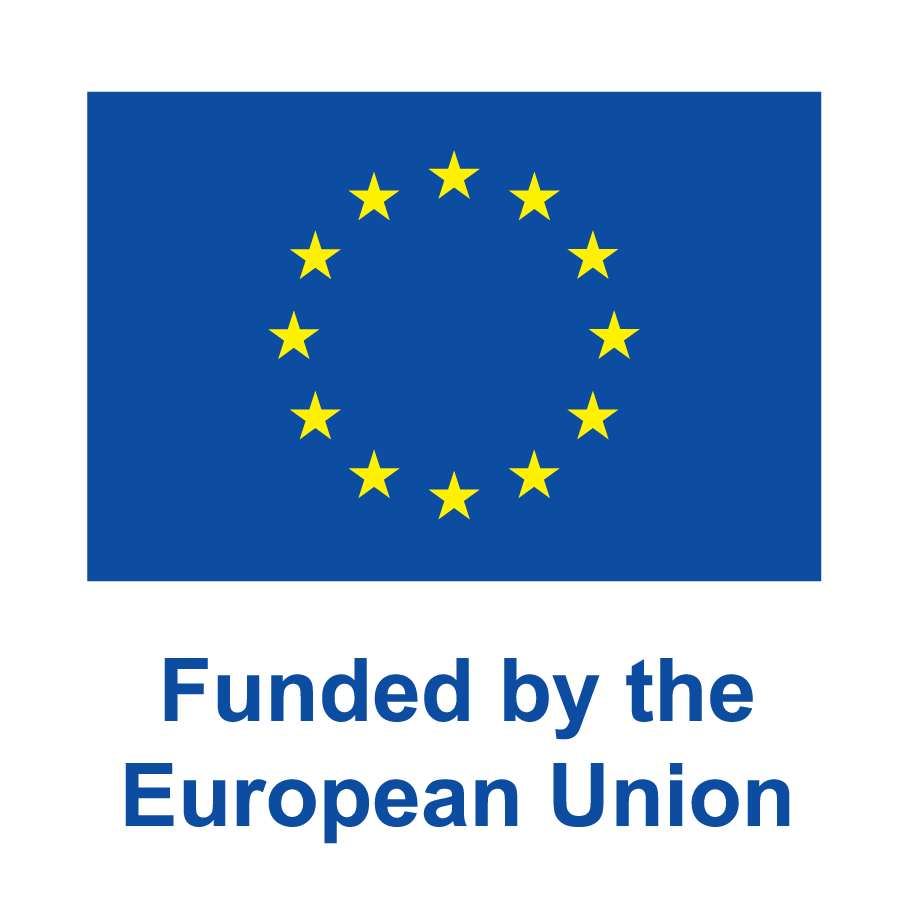Speakers
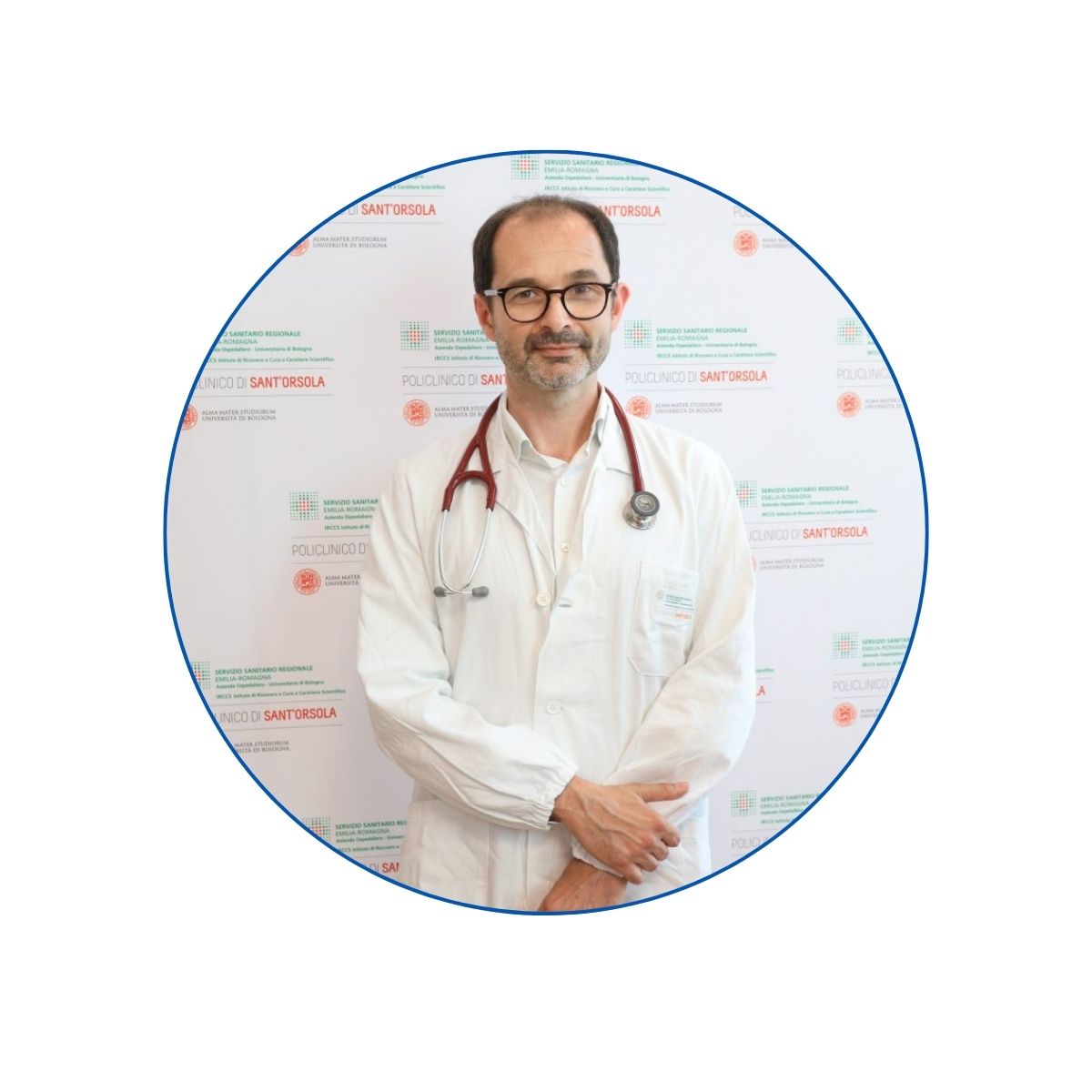
Luciano Potena
Director of the Heart Failure and Transplant Unit at IRCCS AOU Bologna and Project Coordinator of BIOTOOL-CHF Project
Short Bio
Dr. Potena serves as the Director of the Heart Failure and Transplant Unit at IRCCS AOU Bologna. Dr. Luciano Potena will open the Workshop. He will introduce the key concepts and objectives of the project and introduce the several speakers of the that will contribute to the discussions.
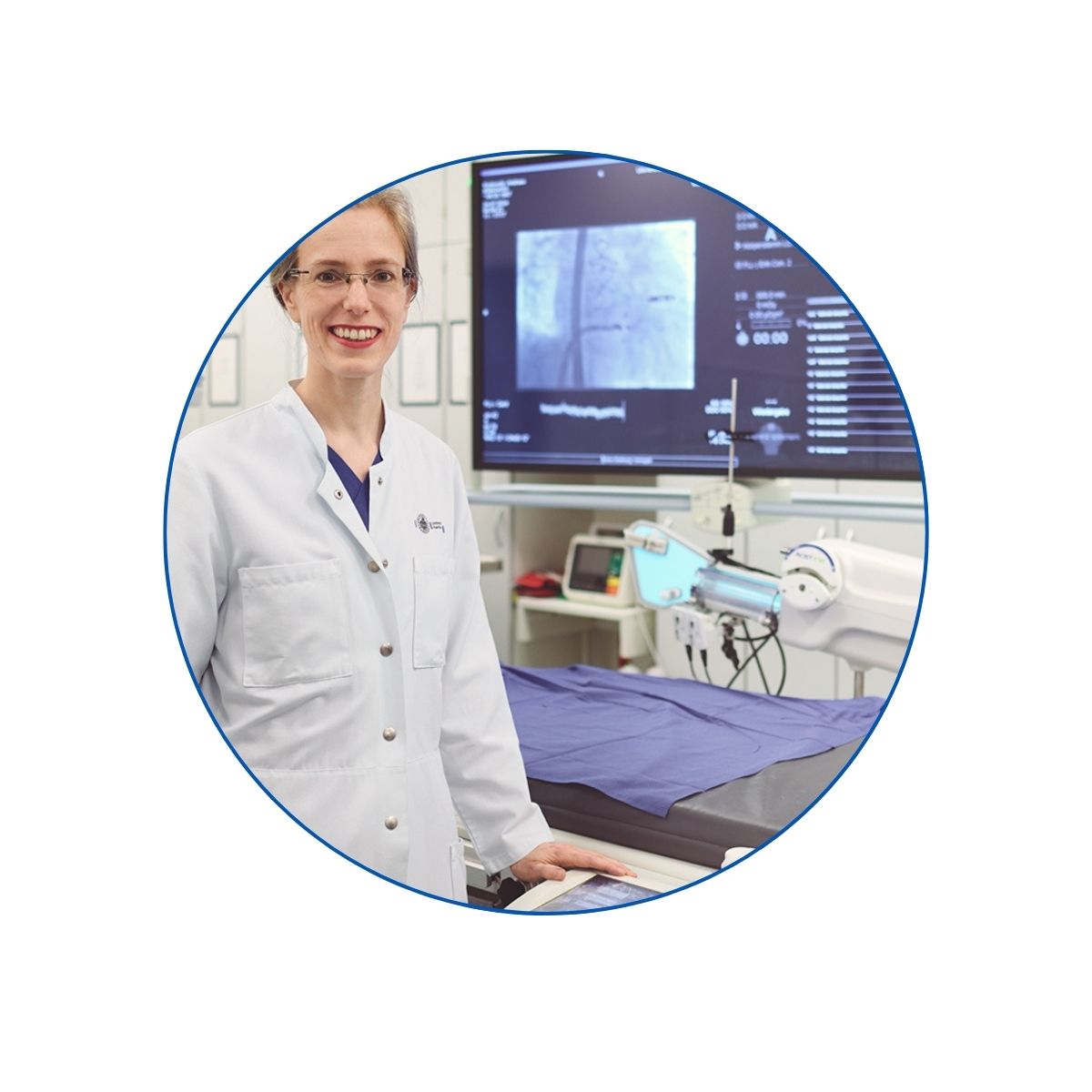
Renate Schnabel
MD, MSc professor of internal medicine and cardiology, interventional cardiologist and consultant in cardiology at University Heart and Vascular Center Hamburg, Germany.
Short Bio
She graduated from medical school from Johannes Gutenberg-University in Mainz, Germany in 2002. After a research fellowship at the Framingham Heart Study, Boston University she moved to Hamburg. Her clinical work focuses on coronary interventions and structural heart disease. She works with clinical and population cohorts and leads national and EU-funded international consortia such as AFFECT-EU (DIGITAL, RISK-BASED SCREENING FOR ATRIAL FIBRILLATION IN THE EUROPEAN COMMUNITY (affect-eu.eu)). She is PI of the German Centre for Cardiovascular Research and on the steering committee of AF Screen International Collaboration. Her research interest is in digital cardiology, atrial fibrillation and heart failure, and omics for cardiovascular risk assessment. Very active within professional organizations, she is member on councils of the European Society of Cardiology, American Heart Association and the German Cardiac Society.
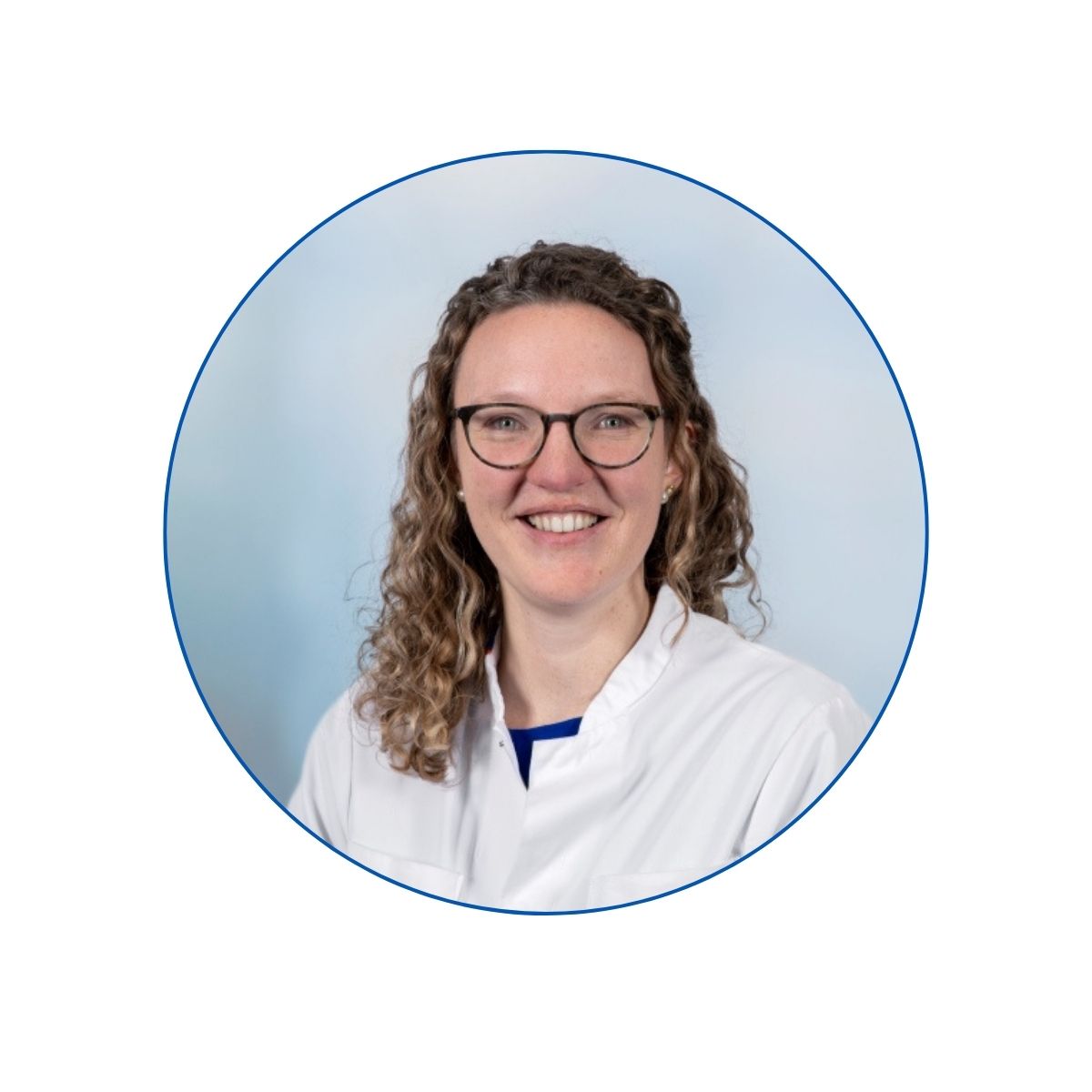
Jozine ter Maaten
Cardiologist and assistant professor at the University Medical Center Groningen
Short Bio
Dr. Jozine ter Maaten, MD, PhD, FESC, FHFA, is a cardiologist and assistant professor at the University Medical Center Groningen, the Netherlands. In her clinical practice, she focuses on (advanced) heart failure and cardio-oncology. After finishing her medical school at the University of Groningen, she went on to get her PhD which was focused on ‘Diuretic response and renal biomarkers in heart failure’. She did part of her PhD at Yale University for which she obtained a Fulbright grant. She consequently completed her internal medicine and cardiology residency training at the University of Groningen and joined the faculty of the department of Cardiology of the University Medical Center Groningen at the beginning of 2023. During her residency training, she continued her research with the assistance of several personal grants.
Dr. ter Maaten is actively involved in the Heart Failure Association of the European Society of Cardiology as a member of the HFA Young Committee and has participated in several position papers. She was recently appointed associated editor for the Journal of Cardiac Failure and is furthermore a member of the editorial board of the European Journal of Heart Failure, section editor for JACC: Heart Failure, and associated editor for Heart Failure Reviews. In the Netherlands, she is the medical leader of the national initiative ‘Deltaplan Heart Failure’.
Dr. ter Maaten will be presenting on: “What is congestion and why it is important in CHF”.
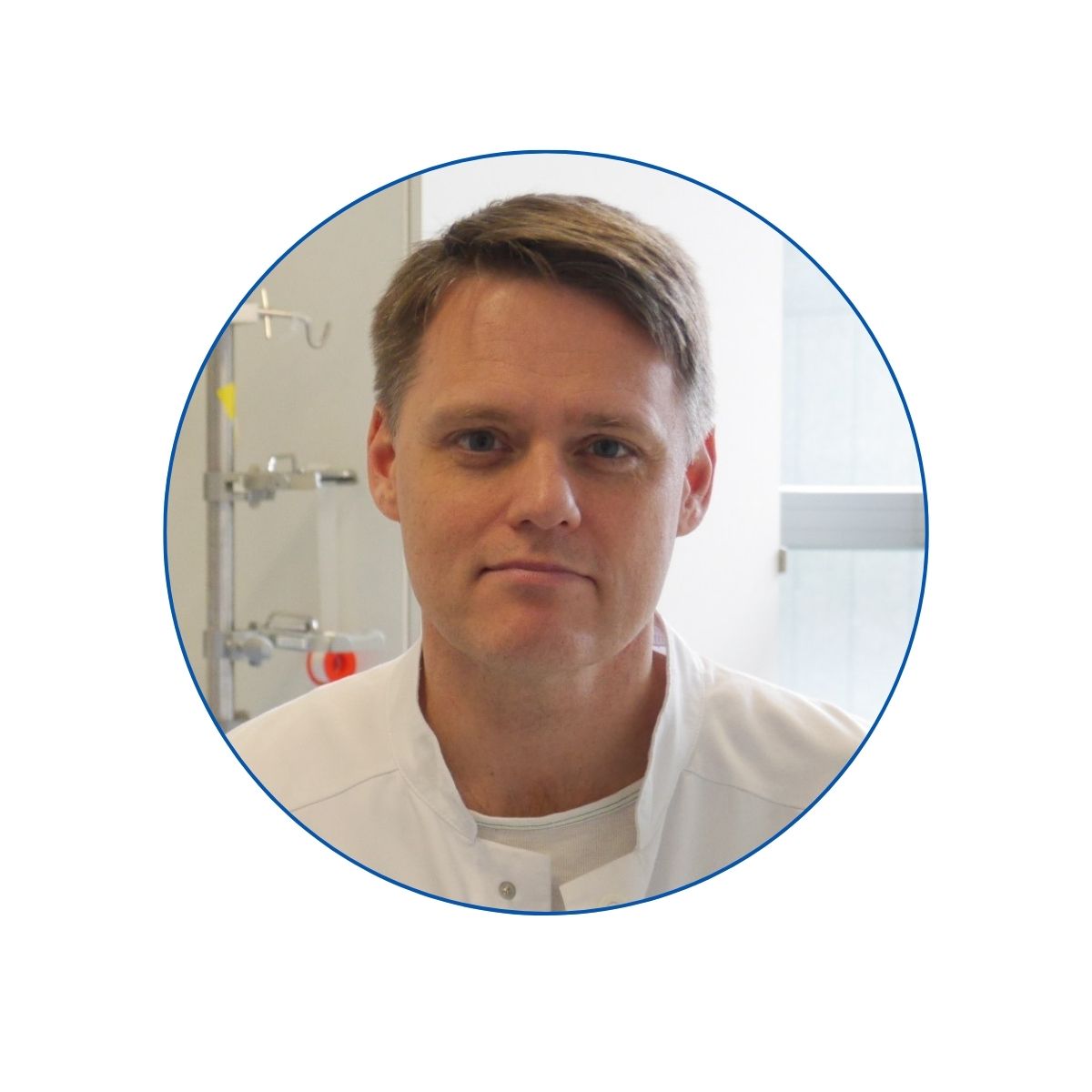
Finn Gustafsson
Professor of cardiology at the University of Copenhagen (UCPH) and medical director of the advanced heart failure, transplantation and MCS program at Rigshospitalet in Copenhagen, Denmark
Short Bio
Finn Gustafsson, MD, PhD is a professor of cardiology at the University of Copenhagen (UCPH) and medical director of the advanced heart failure, transplantation and MCS program at Rigshospitalet in Copenhagen, Denmark. He obtained his medical degree at UCPH in 1994 and completed his clinical training in Denmark and Canada. A PhD in microvascular physiology was awarded to him at UCPH in 2000. He is an author of more than 400 peer-review, PubMed listed articles as well as several book chapters. He serves on the steering committee of several international clinical trials and registries within the field of heart failure. He is the senior guest editor for Circulation: Heart Failure and serves on the editorial board of other key heart failure journals.
Abstract
Attempts to monitor congestion in heart failure (HF) by implantable devices is offered both by use of dedicated devices and opportunistically by use of sensors and algorithms added to devices implanted for other primary reasons (typically pacemakers or defibrillators). There is solid evidence for efficacy of dedicated implanted devices such as the Cardiomems pulmonary artery pressure sensor to reduce hospitalization risk in HF, and data on other dedicated pulmonary artery or left atrial pressure sensors have been published. It is important to realize that these sensors do not detect congestion but rather a common precursor, increase in central filling pressures. Accuracy and, hence, efficacy of opportunistic monitoring tools has so far been less robust but may be improving with better technology and interpretation algorithms, and would have advantages in terms of costs and safety, if proven reliable.

Igor Diemberger
Consultant Cardiologist at the IRCCS AOUBO of Bologna and Associate Professor of the University of Bologna, Italy
Short Bio
Dr Igor Diemberger MD, PHD, FESC, FEHRA is a Consultant Cardiologist at the IRCCS AOUBO of Bologna and Associate Professor of the University of Bologna, Italy. He is an electrophysiologist with special interest in device therapy and clinical management of cardiac arrhythmias. He is active in several fields of research including applying and developing solutions for remote monitoring and mHealth, cardiovascular drug interactions and personalization of cardiovascular treatment in complex patients and settings with over 240 peer-reviewed publications. He is involved in various National and EU funded projects (e.g. BIOTOOL-CHF, RETENTION and TRIGGER) and he is the Coordinator of the PhD program in Health and Technologies of the University of Bologna.
Abstract
We know that congestion is a general term which refers to different conditions and mechanisms. Moreover, we see a high fluctuation of the parameters adopted to define congestion over time in the same patient. All these considerations hamper the reliability of congestion to assess/monitor compensation in patients with heart failure especially in the outpatient setting. In this intervention we will explore the different non-invasive devices currently available for this purpose and look at the pros and cons of their adoption while focusing on the evidence supporting their use.

Rafael de la Espriella
Cardiologist and Heart Failure specialist.
Short Bio
Dr. Rafael de la Espriella is a Cardiologist and Heart Failure specialist at Hospital Clínico Universitario de Valencia, Spain.
Abstract
Emerging evidence underscores the importance of an integrated and multiparametric approach to evaluating congestion in heart failure. This approach combines validated clinical scores, circulating biomarkers, and technical assessments, such as imaging, haemodynamics, and impedance-based tools. In this presentation I will review the role of established and emerging circulating biomarkers for evaluating and managing diverse fluid overload phenotypes in HF.

Clément Delacroix
Post-doctoral researcher in the Paris Transplant Group.
Short Bio
Clément DELACROIX (Phd) is a post-doctoral researcher in the Paris Transplant Group. He defended his Master’s degree in pathophysiology of the heart and circulation in 2017 and his PhD in 2022 on the subject of cardiac fibrosis and heart failure. His research interest focuses on cardiac allograft failure diagnostic based on artificial intelligence.
Abstract
The management of congestion remains a significant challenge, prompting exploration of innovative approaches to improve patient’s care. By integrating large datasets from many data types and sources, a big data approach can be used for precise and personalized risk stratification. We present here the potential of a big data approach in personalizing congestion management, highlighting the role of robust statistical models in extracting the main driving factors of clinical outcomes from these complex datasets. However, we also critically investigate the limitations of this approach in this context, including data quality issues, lack of patient phenotyping and other potential biases. We argue for a cautious application of big data techniques with model validation and careful interpretation of results and model performances to ensure responsible implementation in clinical practice

